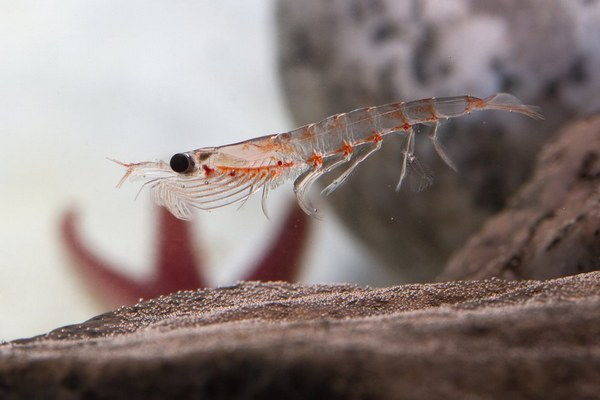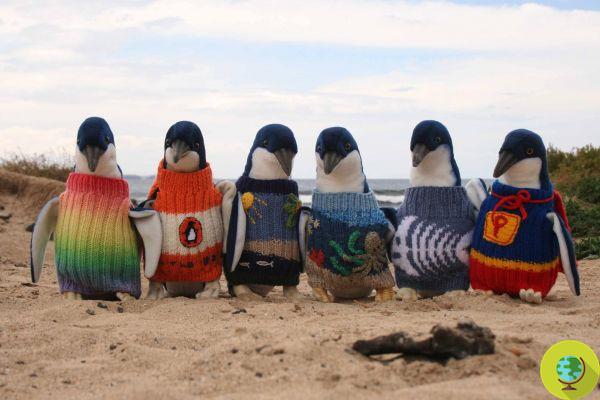Are omega-3 supplements killing seals, penguins and other polar animals? Omega 3 supplements are among the most popular and purchased in the world but may have negative effects on animals in some cases.
Omega 3 supplements are killing seals, Penguins and other polar animals? The omega 3 supplements they are among the most widespread and purchased in the world but could have negative effects on animals as regards their production.
There are omega 3 supplements based on plant ingredients but most of these supplements are made with ingredients of animal origin. A large amount of fish oil containing omega 3 is produced from cod and sardines and is used in supplements.
In the last five years, as regards omega 3 supplements, the diffusion and production ofkrill oil. The term krill defines several species of invertebrate marine creatures belonging to the order Euphausiacea. They come fished several million tons of krill each year for the production of low-cost supplements.
Read also: NOT ONLY FISH: THE 5 VEGETABLE SOURCES OF OMEGA 3

Krill is a lot important for the food chain of arctic species, including penguins and seals, and is critical to the ecosystem of the oceans.
Penguins, whales, seals, albatrosses and other marine animals rely directly on krill as a food source. If krill fishing continues to be excessive, negative consequences could arise for seals, penguins and more.
Read also: OMEGA 3: ALL THE BENEFITS OF "GOOD" FATS
In the world, overfishing is leading to collapse of fish stocks and the krill question is posing strong concerns among environmentalists.
Greenpeace and Sea Shepherd are opposing the production and trade of krill oil to protect the vulnerable ecosystem of Antarctic waters.
According to Greenpeace, Aker Biomarine is the largest company in the world for the production of omega 3 supplements based on krill oil. Their branded supplements are sold all over the world, and catching krill is having serious consequences for the oceans. The company uses advanced technology that allows it to capture plankton and krill in large quantities even when dealing with very small marine creatures. Greenpeace reminds that every animal living in Antarctica feeds on krill, which is why it is such a valuable resource.
Read also: OMEGA 3: WHAT IS THE DIFFERENCE WITH OMEGA 6?

There is hope for action by the Commission for the Conservation of Antarctic Biological Resources (CCAMLR) to curb krill overfishing. In 2010 California has banned krill fishing in their national waters e Whole Foods has pulled krill oil products off their shelves.
Omaga 3, the plant sources
Fortunately, it is not necessary to use omega 3 supplements of animal origin since the vegetable alternatives exist both as supplements and as foods, with particular reference to linseed oil, flax seed e nights, which are easily found both in supermarkets and in organic food stores. Other vegetable sources of omega 3 are some legumes, the seaweed and green leafy vegetables.
To ensure an adequate intake of omega 3, experts recommend taking 30 grams of walnuts every day or at least 1 or 2 tablespoons of linseed oil or ground flaxseed.
According to the table published by the Scientific Society of Vegetarian Nutrition, only one tablespoon of linseed oil (equal to 15 ml) provides about 6,6 grams of Omega 3, while 30 grams of ground flaxseed provide about 3,2. It is important to know that linseed oil is a particularly delicate food: it must not be exposed to light and direct heat and, consequently, it cannot be used for cooking. Instead, it can be used as a raw condiment for vegetables, legumes and sauces, or as a simple food supplement. On the other hand, flax seeds, which must be rigorously ground in order to be assimilated by the body, lend themselves well to making your dishes more complete and tasty, from cereals, to salads, to soups, but they should always be consumed raw and added. possibly to hot dishes only at the last moment so as not to deteriorate the precious substances they contain.
When there are plant-based alternatives, we certainly don't need to buy animal-based omega 3 supplements, don't you think?
Marta Albè


























